Would You Like to Begin Prepping, But Don’t Know Where to Start?
Survivalist 101 contributor M.J. Buchanan shares her tips for beginning the prepping process, including food and water storage, as well advice on how to save money on prepping supplies. She also blogs about survivalism, hiking and camping on her own blog – you can view it here.
M.J. Buchanan: “How and why I got into prepping, I cannot honestly say. I do know we are in good company as more and more people are joining our ranks. Unfortunately, as people are becoming interested in the effort, few really know or understand how to get started.”
Most of us have to prep on a budget, without disrupting our normal lives, so I share some helpful tips learned through my successes and (sometimes) mistakes over many years of prepping.
Determine Available Storage Space for Prepping Supplies
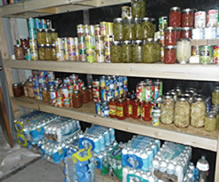
The first thing you need to do is decide how much room you have to store food and supplies and how long you want your supplies to last. Are you looking to be able to survive 1 day, 3 days or indefinitely? The location must be cool, dry and easy to access, but also safe from critter invasions.
Decide what type of containers you want to store your food storage in, such as plastic tubs, 5 gallon buckets, baskets, or a combination of storage containers. Perhaps you will need to buy or build shelves to store your stock on, so include that in your calculations.
Where Should You Store Your Prepping Supplies?
Because we have problems with mice moving into our basement in the winter, I utilize shelves, tubs, refrigerators and freezers for storage.
The benefit of refrigeration/freezing will be covered in future installments of this article. I store most of my paper goods and medicines, which my daughter lovingly refers to as my hoard, upstairs in a spare bedroom.
If you don’t have a lot of storage space, you can utilize closets, cabinets, and even space under the bed to store prepping supplies.
Unusual places like suitcases, filing cabinets, and storage ottomans are ideal for storing smaller items, plus they keep your prepping supplies concealed.
Prepping Supplies: Water is the Most Important Item
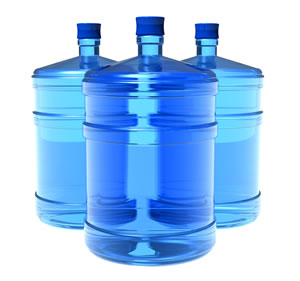
Water storage is very possibly the most critical element in any survival scenario. Don’t count on being able to go to your sink and pour a glass of water. You will need water for hydration, cooking, and sanitation, so plan accordingly.
Remember to allow a gallon of drinking water per person per day. I try to buy a case of bottled water every time I go to the store, especially if it’s on sale. I also buy 3 liter bottles of water for cooking.
Storing Water for Cleaning and Sanitation
If you buy 2 liter bottles of soda, once empty don’t throw them away. Instead, clean them thoroughly and fill them with water. You can store them in the freezer to keep items cold during power outages.
In the event of an emergency, water filled soda bottles, juice jugs or whatever else you can find that will keep water for a long period of time will work great for sanitary needs.
You can wash your hands or face with water stored in this manner and in a pinch, you can also drink it by adding a drop or two of bleach for purification.
I do not suggest buying or storing water long term in plastic “milk” jugs as they will not hold up long enough. I’ve had many issues with leaks developing (even when the jugs have not been touched) and leaking water across the floor. What a tragedy if you think you have all that water in your basement only to discover, when it’s too late, that it’s all gone.
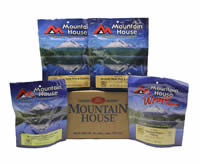
Evaluating Your Food Storage Needs for Prepping
Once you determine where you are going to put your food, you will need to take a hard look at what foods you and your family consume on a regular basis.
Keep in mind allergies and how complicated the preparation might be of meals that can’t contain certain ingredients.
Can any part of what your family enjoys be canned and stored on a shelf, since they only require heating and the addition of a few minor ingredients? For example, I’ve canned more than a dozen quarts of rabbit stew, the only thing missing from it being flour to thicken and/or some noodles or dumplings.
Freeze dried food in pouches or #10 cans that is “just add water” preparation is convenient and easy to store as well.
Include Cooking Sources in Your Prepping Supplies
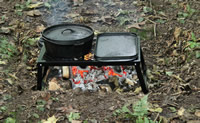
What meals would you be able to prepare on a grill or even over a campfire? It’s a good idea to look into a camping stove, homemade fire pit, or solar oven to give you options for cooking without power.
With the exception of steaks or hamburgers, most of us probably have never cooked outside. Practice makes perfect, so try cooking a pot of baked beans or even chili on a grill or over a fire.
Remember too, you probably need to plan for more than the normal number of meals. When you’re working from sun-up to sun-down, you will be burning more calories and will need to take in more food to keep your energy up.
Start with Basic Foods and Pantry Staples
Initially, you will probably start slowly and with some of the more unappetizing supplies.
Rice and dried beans (both of which are nutritious and the rice is often enriched) are always great items because they can be purchased in bulk sizes and stored easily. The same goes for sugar, most pastas, and many grains.
Flour (all purpose), corn meal, crackers, cereals (especially the more enriched less sugared varieties) can all be prepared for long term storage. Don’t omit baking soda, baking powder and yeast.
Buy it in bulk and then divide out into smaller containers suitable for your family’s needs. You can always store them in food grade 5 gallon pails; however, unless you are absolutely certain of never having to “bug out” of your location, or if you have a very large number of people to prepare meals for, I suggest finding smaller containers to work with.
The more often you have to open a container the higher the chance of contamination occurring. By storing prepping supplies in smaller amounts, you are also creating bartering material. Remember, if society as we know it collapses, money will be worthless. The bartering system will, and actually is, already making a comeback.
Incorporating Canned Goods Into Your Prepping Supplies
Once you have a decent amount of the very basic basics, it’s time to move on to more elaborate stock. Keep an eye out for sales on canned goods. Besides vegetables, remember soups, stews, canned meats, and tuna.
Jarred or canned pasta sauces are also a great addition to your shelves but don’t forget the pasta to go along with it. If you buy macaroni and cheese, try to get the kind that doesn’t require milk. Not only do they taste better (in my opinion) but they are easier to prepare.
Coffee and Drinks are Important Prepping Supplies Too!
Canned, powdered and condensed milk are all great to have in your storehouse. Hot cocoa mixes and water flavorings will add variety to your drink selections.
If you drink coffee, tea or juices, as well as flavored drinks, stock up by taking advantage of any sales and coupons. Juice boxes and coffee can be stored in the freezer keeping it all fresh for a longer amount of time. Frozen juice packets will provide cooling for any last minute food should you lose power.
Don’t Forget the Condiments and Seasonings
Ketchup, mayonnaise, mustard, salt, pepper and other seasonings are just a start of condiments you should have on hand. Barbecue sauce, Worchester sauce, soy sauce, hot sauce, pickles, olives and salad dressings may one day help turn those wild greens or game into a delicious meal.
Learn to Can and Stock Up on Canning Supplies
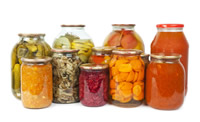
Canning foods is easy to learn and a great way to preserve food. Keep an eye out for sales on chicken, beef or pork and learn to can them all. If you don’t have a garden, buy extra fruits and vegetables when in season, and can those too.
That brings me to another point. Watch for sales on mason jars and canning supplies and stock up. Even if you don’t have a need for them currently, you could later and it’s better to have them on hand.
The Best Way to Survive Well
Whether you are trying to survive for a few days or a few months, the worst thing you could do is feel like you are in a survival situation. The best way to survive, for you and your family, is to try and keep everything as normal as possible.
Obviously, without electricity, running water, television or telephone things will be difficult enough. No need in adding total deprivation and food fatigue to the list. I will delve deeper into the best food to have on hand and the best methods of storage in the next installments of this article as well as what other supplies to think about and start gathering.

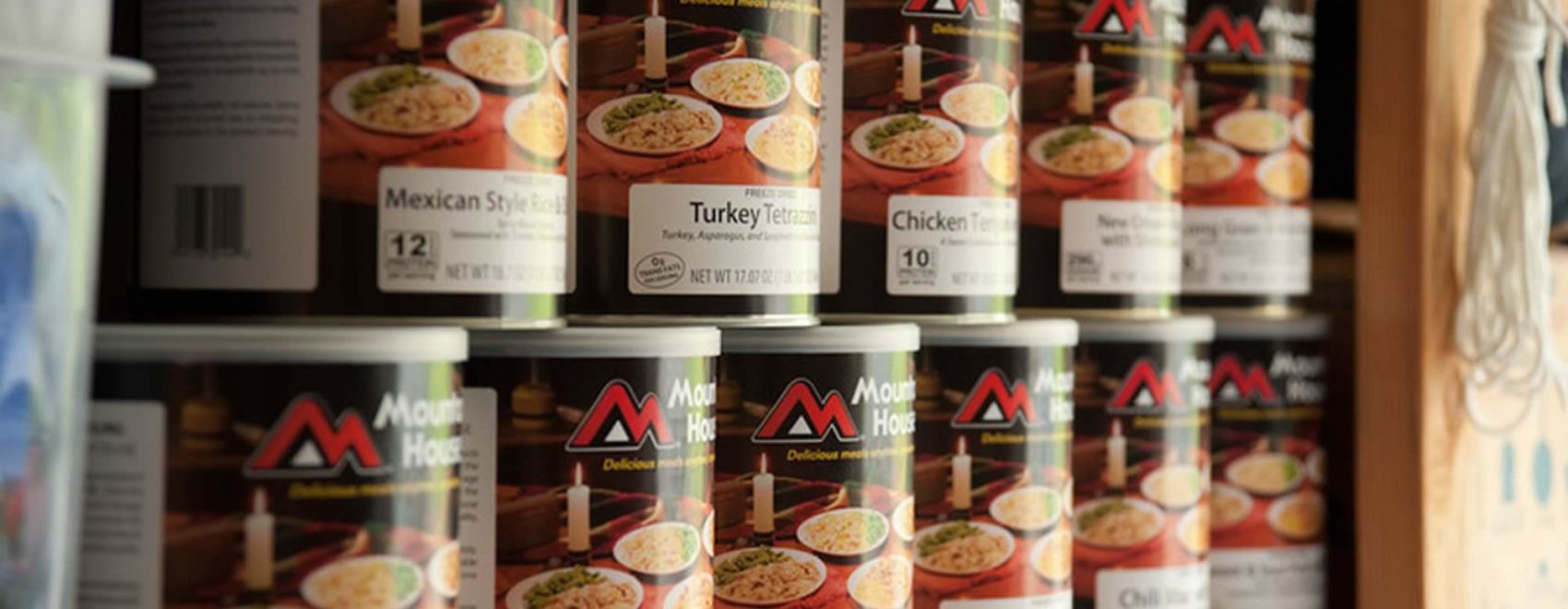
[…] Prepping […]